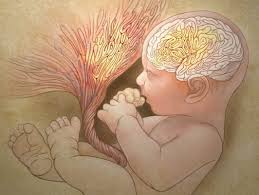PREGNANCY LINE- LINEA NIGRA
LINEA-NIGRA,
What does this mean?
Most people just know the black line appears during pregnancy.
But did you know?
It is also called the Linea Nigra,
It is the dark line that develops across a woman’s belly during pregnancy.
This line runs from the navel to pubic bone.
The line is not always black, just brownish and darker.
This line shows up about 5 months during pregnancy.
Have you checked yours recently?
DUE DATE

How is this Magic Due Date Calculated?
Questions like, when are you due?
When are we expecting the baby?
These are questions that would be asked by family and friends.
A due date calculation is relatively simple if you know the first day of your last menstrual period (LMP).
It is based on the average length of a human pregnancy — 280 days, or 40 weeks, from your LMP.
It also takes into consideration that the average menstrual cycle is 28 days and a luteal phase (the period of time from ovulation to menstruation) is 14 days.
In essence, getting your due date pinpointed exactly based on your specific ovulation and conception date might not be so important after all.
The truth is, your baby will be considered full-term starting at 37 weeks — a full three weeks before the actual due date!
This means that she will make her appearance at any time starting then, although your chances of having your baby increase as the days go by.
From 37 weeks to all the way to 42 weeks, you can be reasonably assured that your baby will arrive.
Babies are really not “early” nor “late” unless they are born before or after this time period.
PLACENTA

The placenta (also known as afterbirth) is an organ that connects the developing foetus (baby) to the uterine wall of the mother to allow nutrient uptake.
The placenta provides oxygen and nutrients to growing babies and removes waste products from the baby’s blood.
The placenta attaches to the wall of the uterus, and the baby’s umbilical cord develops from the placenta.
The umbilical cord is what connects the mother and the baby.
In most cases, the umbilical cord will be cut following birth.
It doesn’t necessarily have to be cut immediately.



